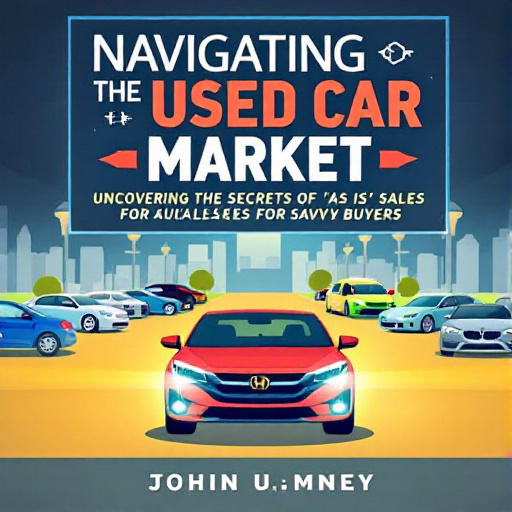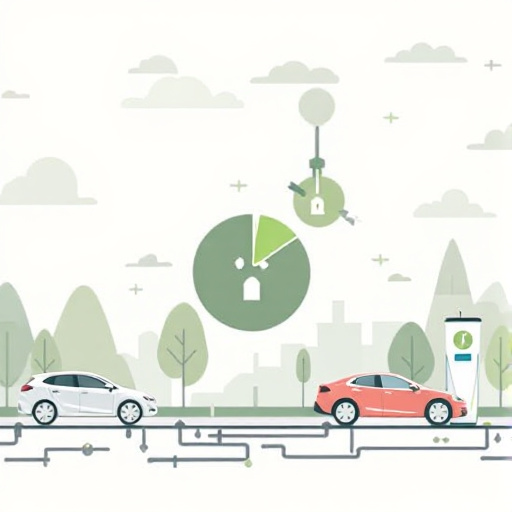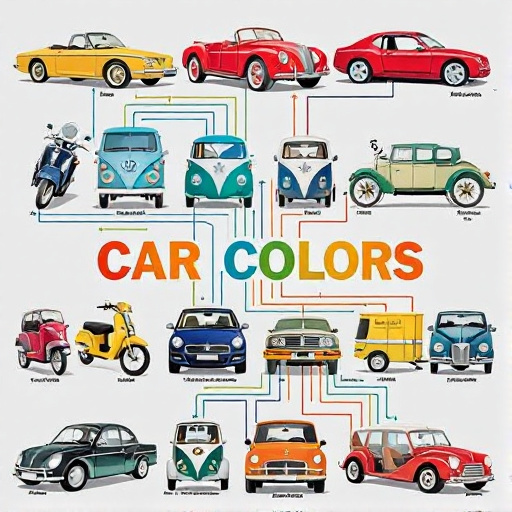Related Articles
- Charged Up! How Electric Vehicles are Reshaping Urban Wildlife Habitats and Biodiversity
- Navigating the Used Car Market: Uncovering the Secrets of 'As-Is' Sales for Savvy Buyers
- The Rise of Electric Car Pop-up Shops: A New Frontier for Urban Retail Experiences
- The Forgotten Art of DIY Car Maintenance: Rediscovering Skills in a Tech-Driven World
- Electric vs. Vintage: The Battle for Enthusiasts' Hearts in the Age of Latest Car Models
- The Rise of the 'Car Review Influencer': How Social Media is Shaping Auto Buying Decisions
Navigating the Used Car Market: Uncovering the Secrets of 'As-Is' Sales for Savvy Buyers
Navigating the Used Car Market: Uncovering the Secrets of 'As-Is' Sales for Savvy Buyers
In today's used car market, savvy buyers need to be well-informed about 'as-is' sales to avoid costly mistakes. This article reveals insider tips, practical advice, and personal anecdotes to help you navigate the complexities of purchasing a used car without hidden traps.
Understanding 'As-Is' Sales
When you see a used car marked as 'as-is,' it usually means that the seller is selling the vehicle without any warranties or guarantees regarding its condition. Essentially, if you buy it and something goes wrong right after the sale, it's all on you. According to the National Automobile Dealers Association (NADA), nearly 70% of used cars are sold 'as-is,' meaning you’re entering potentially treacherous waters. This understanding is vital for anyone looking to make a smart purchase.
A Personal Anecdote: The Used Car Dilemma
Let me take you back to my own experience several years ago. I was 25 and eager to buy my first car. After months of saving, I found what seemed to be a steal: a pristine blue sedan advertised for $5,000, marked 'as-is.' Ignoring that ominous phrase, I bought it without a mechanic's check. Within two weeks, I was greeted by the sinister sound of grinding gears— the transmission was on its last legs. If only I had known then what I know now!
The Hidden Costs of 'As-Is'
Statistics say that roughly one in four used cars sold 'as-is' has a hidden mechanical problem that could cost the buyer hundreds, if not thousands, of dollars to fix. Buyers often get too excited about the shiny exterior and forget to dig deeper. If you’re facing a budget constraint, don’t overlook the potential costs attached to a seemingly great deal.
Inspecting the Vehicle
One of the best strategies is to bring a trusted mechanic when you’re looking to purchase an 'as-is' vehicle. A professional can identify issues that a layperson might miss. If a seller is unwilling to allow a mechanic to inspect the vehicle before the sale, it could be a significant red flag. Always remember: the price you see isn't always the price you pay!
What to Look For
When inspecting a used car, focus on a few critical elements:
- Check the fluid levels: Make sure the oil, coolant, and brake fluid are at acceptable levels.
- Examine the tires: Look for uneven wear, which could indicate alignment issues.
- Listen carefully: Unusual sounds during a test drive can signal bigger problems.
- Investigate the history: Use a service like CARFAX to check for past accidents, ownership changes, and mileage discrepancies.
The Value of Research
In this digital age, you have a wealth of information at your fingertips. Websites like Kelley Blue Book and Edmunds offer comprehensible car valuation tools. Know the average market price for your selected make and model before negotiating. You wouldn’t walk into a store without knowing if you were getting a good deal—so why should buying a used car be any different?
The Psychological Game
The used car market also plays psychological games. Sellers may present their car as the best thing since sliced bread. Don't fall into the trap! Develop your own emotional detachment from the vehicle. Remember the car is an asset, and not a love-struck romance!
Example of an Unsuccessful Sale
Consider the cautionary tale of a friend named Mark. He spent hours convincing himself that a vehicle with “great gas mileage” was a match made in heaven. However, he later discovered that the seller had simply been a master of euphemism via internet listing! His dreary experience led to a $2,000 repair bill just weeks after purchase. The nightmare didn’t stop there—attempts to contact the seller for recourse were met with silence.
Pitfalls to Avoid
As you dive deeper into used car purchases, keep these pitfalls in mind:
- Don't skip the negotiation. Sellers often price their cars with room for negotiation. Stand your ground!
- Beware of too-good-to-be-true deals. If the price is significantly lower than the market, ask why.
- Never skip the test drive. You wouldn't buy shoes without trying them on first, so why put down your hard-earned cash without feeling how the car drives?
Comfort in Numbers
Remember the old adage that "there's strength in numbers"? This rings true when it comes to having trusted people accompany you during your car-buying process! Having a friend, relative, or experienced buyer can ease the load of decision-making and potentially help you catch things you may miss.
Timing of the Purchase
Did you know that shopping at the end of the month could save you money? Salespeople often have quotas and are more willing to negotiate to close deals. Similarly, you may find better prices during off-peak seasons, such as winter or early spring when car sales are generally lower.
The Importance of Documentation
When you finally decide to buy, one of the most crucial pieces of advice is to ensure that all documentation is in order. This includes title transfer, bills of sale, and any existing warranties. Without proper paperwork, you might find yourself in legal limbo or with a car that doesn’t even legally belong to you!
Savvy Buying Strategies
Buying a used car—especially one sold 'as-is'—requires a keen sense of strategy. Here are some savvy tips:
- Set a realistic budget and stick to it.
- Don’t rush—take your time to explore various options.
- Get the car’s VIN and run a thorough history report.
The Comparative Buyer Advantage
A great way to gain an advantage is to do some comparative shopping. Say you find a promising 'as-is' vehicle from two different sellers; look beyond the exterior and the asking price. Comparing details can help you highlight potential red flags that might make the other vehicle a better investment.
Final Thoughts: Happy Hunting!
As you navigate the used car market, remember that preparation, research, and a keen eye can save you from the pitfalls associated with 'as-is' sales. Enjoy the process—after all, this is about finding a vehicle that will serve you for years to come. Happy hunting!
A Call to Action
So, what’s your next step? Perhaps it’s time to hit the pavement and start visiting dealerships. Armed with your newfound knowledge, you'll be ready to seize the best deal that meets your needs! Go out there and snag that dream ride!
Just remember, if it sounds too good to be true, it probably is. Use your resources, ask questions, and—most importantly—trust your instincts. A savvy buyer is a successful buyer!




